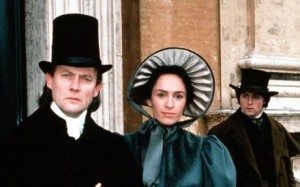The not-so-esteemed genre of ‘chick-lit’
[dropcap]L[/dropcap]et’s say you’re shipwrecked on an island for however long and you can only take one book with you (a cruel choice, I know…somewhat akin to Sophie’s Choice). Mad About the Boy or Anna Karenina? The Devil Wears Prada or Middlemarch? Confessions of a Shopaholic or Sense and Sensibility? There’s no doubt that you would have chosen the first option in at least one of those questions (if not, you’re either a boy, or lying about being a girl). The not so venerable genre of “chick lit” has never quite won approval from critics or those readers who say they only bother with the “serious books”. Yet these novels triumph in the best sellers list and have led to popular film adaptations, gaining diehard (or indeed Twihard) fans along the way. What is it that makes “chick lit” so addictive but also keeps it firmly under the header of “guilty pleasures”?
 The problem seems to lie with the reputation of “chick lit” as these novels explore less intellectual themes and are less well written, according to various critics that is. Indeed, earlier this year, education secretary Michael Gove criticised Twilight and promoted Middlemarch. However, judging by the sales figures, most people disagree with him. The popularity of books such as Fifty Shades of Grey, the entire Twilight saga and a whole host of books by Marian Keyes indicates that the public does love a little bit of “lighter” reading. The identifiable nature of the topics explored, the likeable, uncomplicated characters and the accessible language and style ensures these books are just so readable. Unfortunately, these are the very features that keep these novels solidly in the “guilty pleasures” section and venturing out in public with one of these books (such as reading one on the train) is a difficult task which many dare not to attempt (coming out of the chick -lit closet is a feat many never achieve). Criticisms include the fact that there is always a predictable plot line, a one dimensional characters only policy and that the humour would cause Austen to have heart palpitations. Whilst these assertions are not always untrue, it seems somewhat irrelevant because “chick-lit” never fails to entertain and engage. Despite some flaws with characters or plot lines, books like The Devil Wears Prada, although not a literary masterpiece in the way it has been written, will deliver comedy and a story with panache.
The problem seems to lie with the reputation of “chick lit” as these novels explore less intellectual themes and are less well written, according to various critics that is. Indeed, earlier this year, education secretary Michael Gove criticised Twilight and promoted Middlemarch. However, judging by the sales figures, most people disagree with him. The popularity of books such as Fifty Shades of Grey, the entire Twilight saga and a whole host of books by Marian Keyes indicates that the public does love a little bit of “lighter” reading. The identifiable nature of the topics explored, the likeable, uncomplicated characters and the accessible language and style ensures these books are just so readable. Unfortunately, these are the very features that keep these novels solidly in the “guilty pleasures” section and venturing out in public with one of these books (such as reading one on the train) is a difficult task which many dare not to attempt (coming out of the chick -lit closet is a feat many never achieve). Criticisms include the fact that there is always a predictable plot line, a one dimensional characters only policy and that the humour would cause Austen to have heart palpitations. Whilst these assertions are not always untrue, it seems somewhat irrelevant because “chick-lit” never fails to entertain and engage. Despite some flaws with characters or plot lines, books like The Devil Wears Prada, although not a literary masterpiece in the way it has been written, will deliver comedy and a story with panache.
By confessing an appreciation of “chick-lit”, it does not mean a condemnation of classics. One of my favourite books is To Kill a Mockingbird, most definitely not a “lighter” book or obvious holiday read. Defining a “good book” is impossible as it will always be a subjective undertaking and so the reputation of “chick-lit” is undeserved, as this genre can never be classified as “bad”. Those who avoid it fail to embrace the variety that the literary world has to offer and miss the opportunity to broaden their minds with something that is a little less lofty but nevertheless a work of art.
 Perhaps Something Borrowed is the literary equivalent of the Spice Girls, but who’s to say that that is a bad thing? Spice up your life (pun intended) with something fun! Next time I’m on the train I’ll be reading the newest instalment of the Bridget Jones series…and this time I won’t be hiding it inside the newspaper.
Perhaps Something Borrowed is the literary equivalent of the Spice Girls, but who’s to say that that is a bad thing? Spice up your life (pun intended) with something fun! Next time I’m on the train I’ll be reading the newest instalment of the Bridget Jones series…and this time I won’t be hiding it inside the newspaper.

Comments (1)